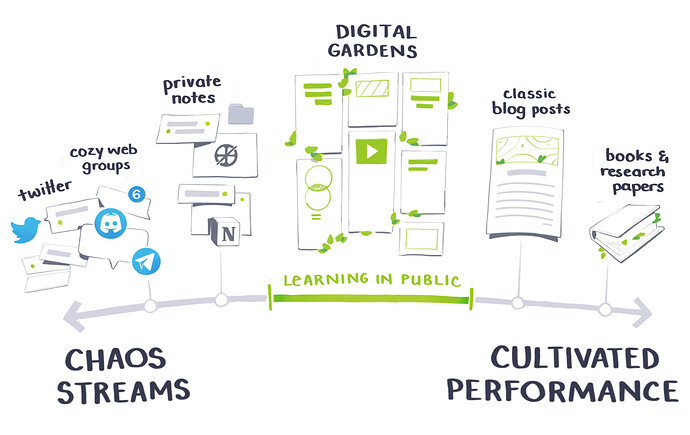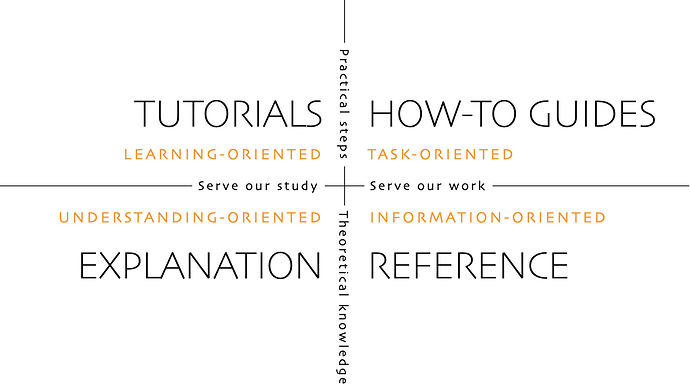Thank you for the input @solstag.
The fact that forum is public, centrally searchable and managed by us is important for that.
I agree this greatly helps keep information in one place. And Discourse’s search and typing suggestion features help find that information. This is all very good!
However, I probably wasn’t clear enough about the problem I am concerned with. I was using this forum as an example of a higher level challenge, which is how institutional/organisational knowledge is synthesized and effectively passed on.
To use the forum example, sure conversations are recorded, but what was learned from them are not collectively remembered, and (mostly) only people who were there would ever think of to search for that information in that thread. Not to mention when you search, you don’t know what things you are missing that’s not shown in the search results.
Another example from this forum is that discussions around knowledge management also just came up in this other thread about self-hosted apps. @dusjagr provided a great summary of a chat we just had about the topic (thanks @dusjagr!), but it is not obvious at all that a substantial comment about knowledge management happened in a thread titled “Self-hosted apps for GOSH”.
@briannaljohns’s newsletters got me to think more about this, and brought me to this excellent overview of digital gardening by Maggie Appleton. Digital gardening involves a specific methodology for synthesising, organising, and recording learnings, but for this post I’ll share this illustration from Appleton’s article:
On the left are what I think of as “raw data”, bits of conversations and messages some of which are potentially valuable. On the right are highly synthesised outputs like books and research papers. For GOSH, things like the Events Framework, policy documents, or the GOSH Manifesto would lie on the right. Forum threads would be more on the left, though not as far as Twitter threads.
The digital garden is in the middle, where there is continuous “cultivation” where things we are learning from the raw data are summarised. Something similar to this are @briannaljohns’s newsletters. The thing with newsletters is that they are organised by time, rather than ideas or concepts in a digital garden.
@dusjagr mentioned they tried “wiki gardening” for Hackteria, but it was difficult to pull off. I suspect this is true if there’s no sustained effort from dedicated people. Maybe this is also true for GOSH, but as a learning experience and experiment, I’m happy to give it a try.
And there would be value in this if digital gardening is successful. For example, someone completely new to GOSH could look at the garden and get a better overview of the conversations going on, the main topics/ideas that we GOSH has collectively learned about, and perhaps even who to talk to about what. This is less intimidating than being thrown into a forum where you might be overwhelmed with a ton of past threads you didn’t participate in.
I don’t know how far this idea can get, but would be happy to explore it with some of you if there’s interest. We can try different tools and methodologies and just see what happens! (?)
 )
)
 I suppose we can create a shared library there as an “index” to keep track of the disparate pieces of knowledge that builds up all over the place. IIRC Zotero has types for forum threads, multimedia resources, software, reports, etc. in addition to the usual suspects like academic papers. I am also a fan of Low-Tech Magazine.
I suppose we can create a shared library there as an “index” to keep track of the disparate pieces of knowledge that builds up all over the place. IIRC Zotero has types for forum threads, multimedia resources, software, reports, etc. in addition to the usual suspects like academic papers. I am also a fan of Low-Tech Magazine.

